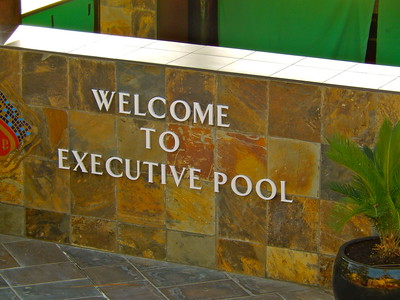Yesterday, I wrote about a phenomenon that occurs at higher education institutions following a recession: the tuition increases in an extraordinary way. A community college is partially funded by property taxes, so when the economy is good, the tax revenues rise. Why are tuition increases even necessary?
Institutions typically avoid major tuition increases in the thick of a recession. It’s a good look, but not necessarily a good business practice. Inflation still occurs during a recession, so the institution still must contend with inflationary cost increases for things like salaries and benefits, utilities, supplies, services, etc. Immediately after a recession, the institution might need to balance out the inflationary losses it swallowed if it didn’t increase its tuition revenue or get more money from the State.
During a period of economic growth, the institution might feel comfortable taking on construction or remodeling projects, or other high-dollar expenses. It may create new programs. It might hire more staff. And maybe, it’s just not good at managing its money because there’s no immediate pressure to.
That’s the mistake.
Preparing for the next recession
Whether the economy is good or bad, a community college should always prioritize the repair and maintenance of its buildings. Timely action is the best way to keep maintenance costs as low as possible. A community college should also prioritize the creation of new academic programs when financial resources are readily available. This prepares the community college for the next recession.
New construction is a much thornier question. Frankly, most building projects aren’t worth the expense. The decision to approve new construction should come only following rigorous analysis of the building plan. It should not rest upon ridiculous Administration hyperbole about the “future of the College” being deeply intertwined with the building project. (Especially when the purpose of the building project is muddled to begin with.
To avoid committing operational resources to a capital project, the Board should always – as a rule – ask the taxpayers for a separate funding stream to finance construction. If the taxpayers say “No,” then get along without it. Using General Fund resources to pay for debt works only when the General Fund is flush with cash. But debt is persistent, and the College owes it whether the General Fund is full or empty. When the taxpayers fund a project with a separate tax, the College can save the General Fund for operations.
Expanding the staff leads to tuition increases
What the College absolutely should not do is expand the staff in a positive economy. Unnecessary staff expansion consumes the resources that the College should use to maintain buildings, expand programs and potentially take on absolutely unavoidable construction. Excessive staff expansion robs the community college of its ONE opportunity to prepare for the next recession. Worse, a hiring binge requires a steady stream of tuition increases to support it.
It’s up to the Board of Trustees to ensure that the Administration justifies every single new hire as absolutely necessary. The Board should require the Chief Financial Officer to prepare a 10-year projection of the cost of every single new position the Administration seeks and explain its impact on the College’s structural deficit. Then, the CFO should be required to certify that the College can afford to take on each new hire.
Finally, the Board should institute a firm cap on the size of the Administration. Once the Administration reaches the cap, it can create no additional positions. Instead, it can either convert an existing position, or wait until a vacancy occurs. The cap should not exceed the size of the full-time faculty. If the Administration can tightly restrict expansion of the full-time faculty, it should have no problem controlling its own size. Controlling the size of the Administration is the only way to avoid the large tuition increases that reduce affordability for future students.
Photo Credit: Studio Sarah Lou, via Flickr















